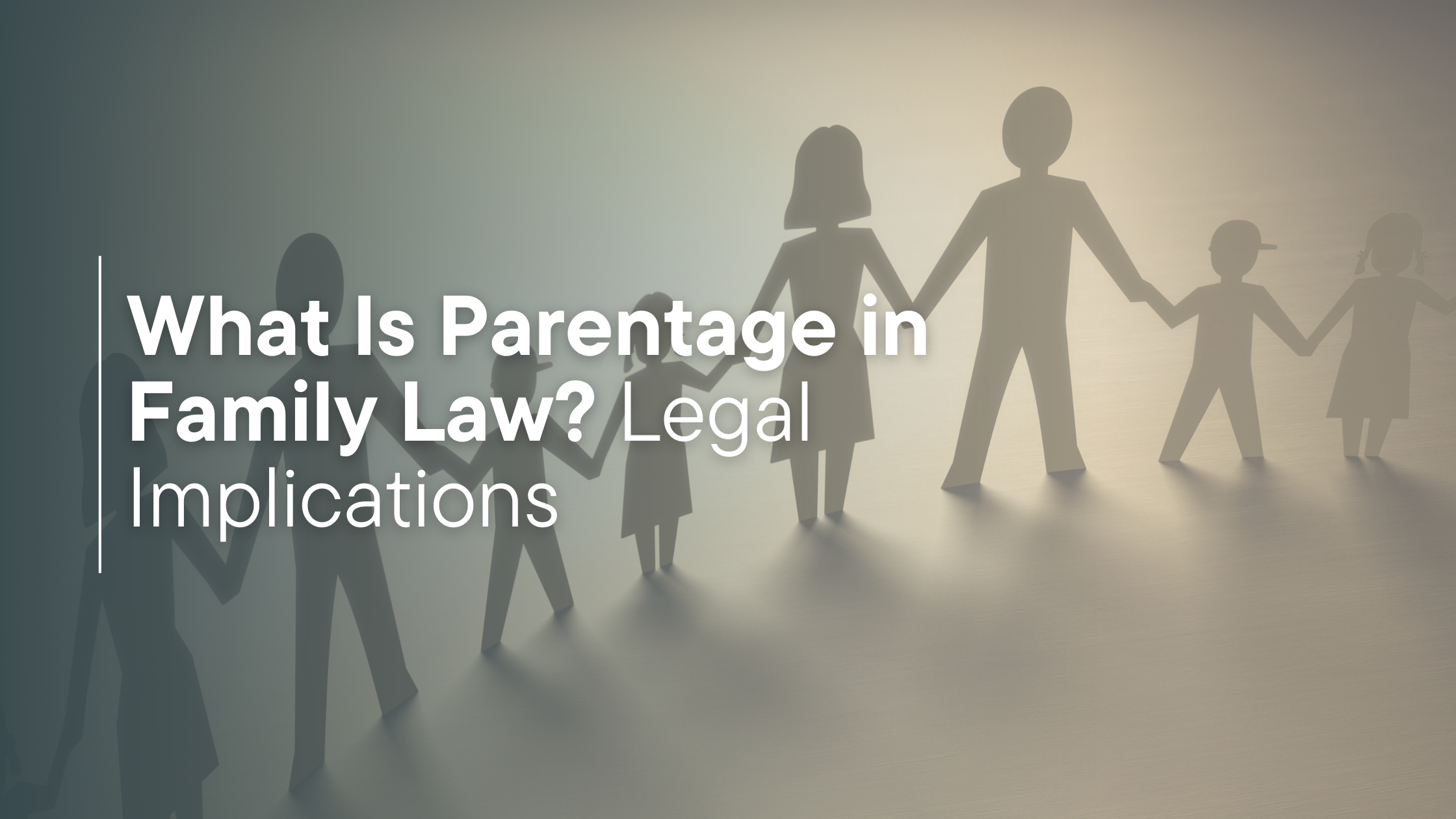Navigating the complexities of family law can be overwhelming, especially when it comes to establishing parentage. Whether you are dealing with custody arrangements, child support, or inheritance rights, understanding parentage and its legal implications is essential. At Barli & Associates LLC, we guide you through every step of the process with clarity and confidence. Let’s explore what parentage means in family law and how it impacts your legal rights.
What Is Parentage?

In family law, parentage refers to the legal determination of who a child’s parents are. While biological parentage is typically straightforward, legal parentage is not always so clear-cut. Establishing parentage is crucial because it establishes parental rights, responsibilities, and legal obligations. Whether you are a biological parent, an adoptive parent, or a parent seeking to assert your rights, understanding this concept is key to ensuring your interests are protected.
Parentage is often essential in cases involving custody disputes, child support, and inheritance. Legal parentage can be established in several ways, depending on the circumstances surrounding the child’s birth and the relationship between the parents.
Legal Methods of Establishing Parentage

There are several ways in which parentage can be legally established:
- Voluntary Acknowledgement: When both parents agree on the identity of the child’s parent, they may voluntarily acknowledge parentage. This is often done at the time of birth, where both parents sign the birth certificate, or through a formal acknowledgment process.
- Court Determination: In some cases, courts intervene to determine parentage, particularly if there is a dispute. Courts may order genetic testing, such as DNA testing, to confirm biological parentage.
- Adoption: Adoption is a legal process where a person assumes the rights and responsibilities of a parent, regardless of biological connection. Once an adoption is finalized, the adoptive parent becomes the child’s legal parent, with all the rights and responsibilities that entails.
Legal Implications of Establishing Parentage

Establishing parentage has significant legal consequences for both parents and children. Here’s how it affects various areas of family law:
- Custody and Visitation: Legal parentage is a key factor in custody and visitation decisions. Courts prioritize the best interests of the child, and establishing legal parentage is crucial for determining which parent will have primary custody or visitation rights.
- Child Support: Legal parentage is also tied to child support obligations. Once parentage is legally established, the non-custodial parent may be required to pay child support to the custodial parent for the child’s care and well-being.
- Inheritance Rights: Parentage plays a critical role in inheritance matters. A child who is legally recognized as the offspring of a parent has the right to inherit from that parent under the law. This also affects the distribution of the parent’s estate in the event of their passing.
- Health and Social Benefits: Legal parentage ensures that the child has access to various benefits, such as health insurance, social security, and other financial support. These benefits are typically only available to children whose parentage has been formally recognized.
Disputes Over Parentage

Disputes over parentage can arise for various reasons, such as disagreements about paternity or surrogacy arrangements. If you are facing a parentage dispute, it’s important to understand the legal process for resolving the matter:
- Paternity Issues: When a father’s identity is questioned, DNA testing can be used to confirm or deny paternity. This is especially relevant when the father wishes to assert parental rights or when child support is at issue.
- Surrogacy and Parental Rights: In cases of surrogacy, determining the legal parentage can be complicated. Different states may have varying laws regarding the parental rights of surrogate mothers and intended parents, making it crucial to consult a legal expert to ensure that the process is handled correctly.
At Barli & Associates LLC, we provide expert guidance to help you resolve any disputes over parentage efficiently and fairly.
Parentage in Same-Sex Relationships

For same-sex couples, establishing legal parentage can present unique challenges, particularly if one parent is not biologically related to the child. Legal avenues for establishing parentage in these situations may include:
- Adoption: In many cases, one partner may need to adopt the child in order to establish legal parentage, especially if the child was born before the relationship.
- Presumed Parentage Laws: Some states have laws that presume both partners in a same-sex marriage or civil union are the legal parents of a child born during the union, even if only one partner is biologically related to the child.
Recent changes in family law have made strides toward recognizing the legal parentage of same-sex couples, but navigating the process still requires careful attention to detail and local regulations.
Conclusion
Understanding parentage in family law is vital for protecting your rights and the rights of your children. Whether you are dealing with custody, child support, inheritance, or a dispute over parentage, establishing legal parentage ensures that the child’s best interests are safeguarded. If you are facing a parentage issue, it’s important to seek professional legal guidance to navigate this complex area of law.
At Barli & Associates LLC, we are committed to helping you resolve parentage-related legal matters with the expertise and personalized attention you deserve. Schedule a consultation today to discuss how we can assist you in securing your family’s future.





